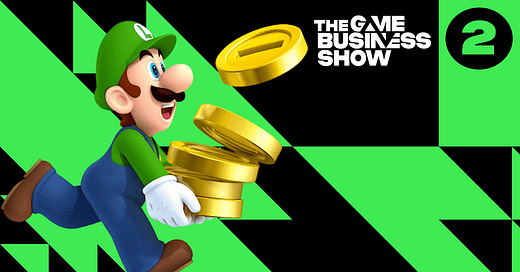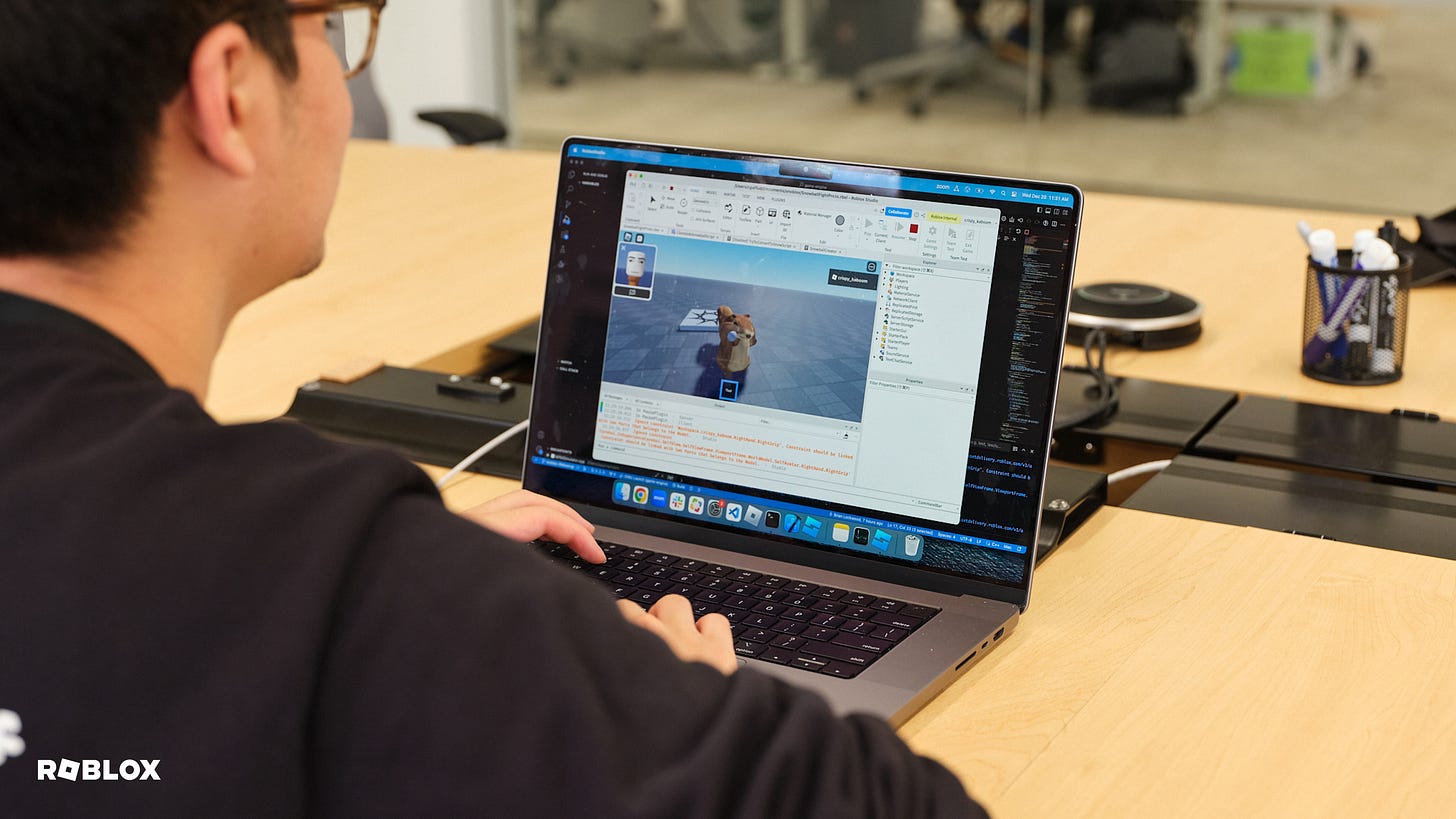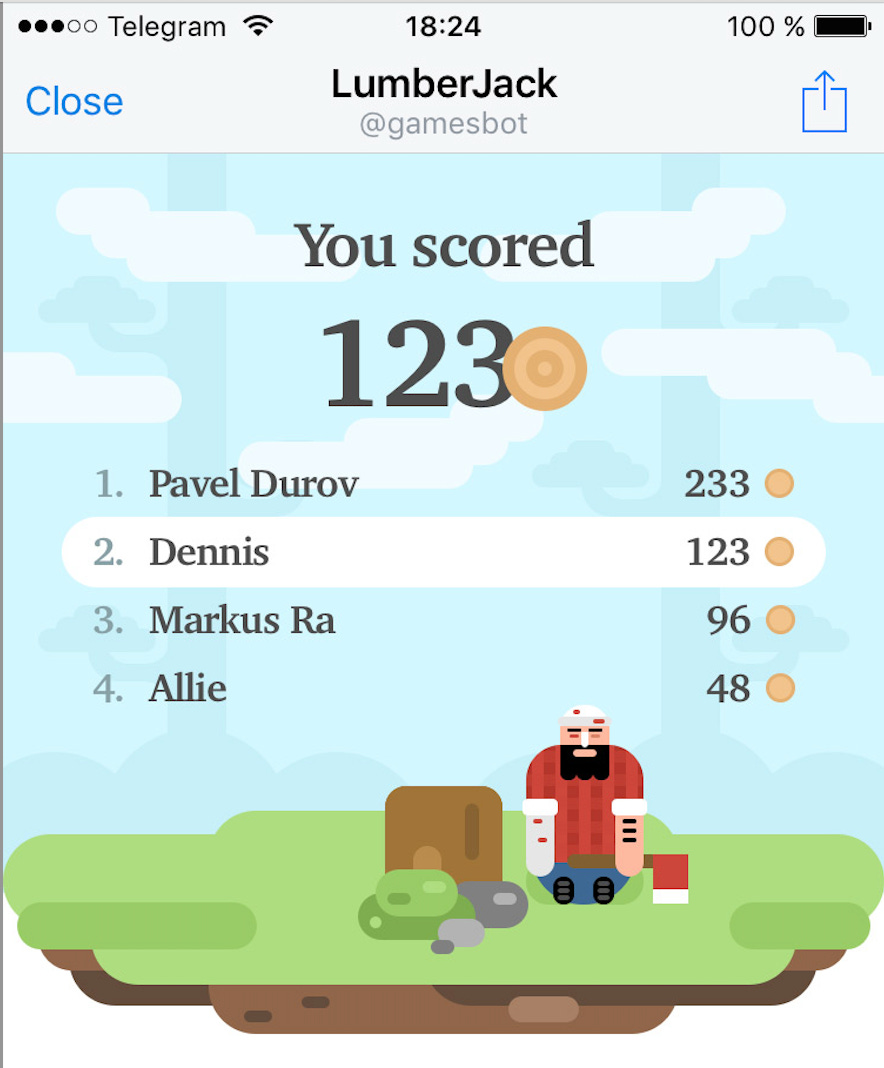Listen now on Apple, Spotify or YouTube
In This Edition:
- Video game investors are feeling slightly more positive about the market, but predict tough headlines still to come
- Backing AAA games is a risk most investors are unwilling to take in 2025
- Roblox is an exciting area for the market, but VC firms remain sceptical
- We chat to Blizzard co-founder and Dreamhaven CEO Mike Morhaime
Welcome back to The Game Business Newsletter! I am glad you’re still here. Over the past few weeks, I’ve been chatting to all sorts of game investors, VCs and analysts on the state of the market… and the news wasn’t quite as bleak as I expected. Enjoy!
Investors shifting away from AAA, but eyeing smaller, leaner teams
Video game investors are feeling better about the market, but admit they’re shifting away from investing in very large AAA projects, and are more interested with smaller teams and focused ideas.
“I definitely think that there is periods of pretty intense doom and gloom,” says Kelly Wallick, partner at 1Up Ventures. “I would say I've seen a little less doom, maybe a little more gloom, but the whole overall thing hasn't felt as heavy.”
Hiro Capital partner Spike Laurie adds: “There is optimism. It’s about going back to good business fundamentals. Obviously headcount cuts are horrible. But now all those changes have come out, teams that were 500, 900, 1000 people have come down to much smaller, much leaner teams, that creates a good foundation.”
Meanwhile, London Venture Partners says it has kicked off the year by making three studio investments, compared with just the one the year before. “I've only been with LVP for just coming up two years now, and there's been a big shift, in my opinion, from when I joined and it was all down in the dumps to now,” says associate Gus Curley. “It feels a lot more optimistic. A lot more is happening.”
“The people doing those [big AAA] deals have stratospherically crashed out of the market. That funding isn’t coming anymore.”
Indeed, both Curley and angel investor Nick Button-Brown point to data from VC firm Konvoy, which shows an increase in the number of early-stage investment deals in 2024.
Nevertheless, it remains a highly challenged space, with investors spending less on the game space overall, at least for now.
“In uncertain times, when interest rates are kind-of high, it takes very, very bold and brave investors to be making speculative bets on things like the games industry, especially as a lot of venture capital funds that funded developer and publishers over the last couple of years had not met expectations, had not returned cash or capital to their investors,” Laurie adds. “So we're still in a climate where people that are funding this stuff would rather put their money in the bank and sit and wait, than invest it in video games.”
8 Takeaways From Our Investment Special
1. Investors are backing away from big AAA projects
“If a team comes to me looking for $20, $30 million to get to a vertical slice for a AAA game, I'm not the fund for you,” says Hiro Capital’s Spike Laurie. “And actually the people that were doing those deals have stratospherically crashed out of the market. That funding isn’t coming anymore.”
He adds: “As an investor, why would you invest in that space? Why wouldn't you put eight $5m, $10m, $15m to work and have an Enshrouded or a Space Marine 2, versus putting $50m, $80m, $100m, $200m to work for something that's just not going to return.”
Angel investor Nick Button-Brown adds: “It’s very difficult to make a return on a AAA game. If you're building AAA game and it's going to cost $80 million, then to get the kind of return which means you can pay money back, you’ve got to make $400 million.
“That is a stretch for any level of optimism to, with confidence, say you are going sell that number of games. So AAA is difficult to raise money for.”
Olliver Heins, co-founder of gaming group Aonic, adds: “[AAA] is not the strong suit in the market right now. I'm sure if you have an established IP, but if you now try to build a AAA IP from scratch… that's a very, very strong battle you have to fight. And you need to be prepared that you might lose.”
“It’s not ‘survive until 2025’. It’s recognize that the old
business is not where we are now.”
2. And that means they’re looking for a different type of founder
A few years ago, it was common to hear of development veterans leaving projects such as Call of Duty or League of Legends, launching a new studio and attracting significant sums of VC money. But today, those are not necessarily the types of people who investors are looking to partner with.
“A lot of the companies that got funded in 2019 to 2021 were these founders coming from these massive studios like Riot or EA, who have worked on major franchises,” says LVP’s Gus Curley. “But now it's moving to much more to scrappy [founders] with previous entrepreneurial experience…. Not necessarily successful by any means, but people who've been through it before and can do it again, and not been part of these massive teams. Rather, been part of a small team and can actually ship something.”
Kepler and Kowloon Nights CEO Alexis Garavaryan adds: “Everyone has seen new studios getting started by well-known veterans, with an extremely large budget for their first game. And in our experience, actually the most successful teams tend to go for something more modest on their first game to try to build up because it's a really challenging thing.
3. The number of early stage deals are still higher than pre-pandemic levels
According to a report from VC fund Konvoy, 2024 saw a big drop in the number of deals being done around games, and an even sharper fall in the value of those deals.
However, the 446 VC deals that were signed in 2024 is actually more than the 434 that were done in 2020. So when it comes to the quantity of investments, particularly those early stage investments, we’re still seeing growth over pre-pandemic levels.
Both Gus Curley and Nick Button-Brown cited this data to me as evidence that there is funding out there. And that’s hard to dispute. There are still stories of new games studios receiving funding, certainly not to the level we saw a few years ago, but investments are happening and new teams are emerging.
“It's reasonably positive right now,” Button-Brown insists. “If you look at the stats, there were more pre-seed and seed deals done in 2024 than there was in 2019. If you cut out 2020 to 2023, actually there's a reasonable level of growth of seed deals happening for a very long time.”
4. Investors want to see a prototype before investing
The days are over when developers could receive investment with nothing more than a pretty sales pitch. In fact, many of the investors we spoke say they need to see something showable, even a prototype, before they’d consider investing.
“Before, you were able to raise based on how bullish you are, how bullish your hiring schedule is going to be,” says Curley. “You could even develop a vertical slice for $3m seed funding. That is no longer possible. We're looking for teams that are able to build something, get it out to market and get feedback.”
5. Roblox is exciting, but VC firms remain sceptical
All the investors we spoke to are either watching or actively investing in the area of user-generated content. Specifically, we’re talking about developers working within Roblox and Unreal Editor For Fortnite.
“When you’re looking at these UGC platforms, year after year after year, we are seeing 20 percent growth, sometimes even higher on a user basis,” says games analyst Matthew Ball.
“So they’re growing remarkably faster than the market, growing consistently so, and their user bases are as enormous as they are. By some measures, Roblox is now near 425 million MAUs. They are delivering more hours of engagement than the entirety of Steam. In fact, you can add up the Switch, PlayStation, and Xbox together and they are less.”
Although VCs appreciate the impact of reach of games like Roblox, for them, it doesn’t necessarily make sense from an investable point-of-view.
“I've talked to Roblox studios that are smaller, younger teams that are super happy with how they're able to support themselves,” says 1Up’s Wallick. “But on a venture scale, that's a different question. Are you able to make something that's a hit and reinvest back into your studio and make more content? Are you able to earn enough to get either out of Roblox or do something that's really going to be a big hit the way it would be on PC or console or something like that? That's still a question mark.”
Hiro’s Laurie adds: “The UGC space always feels like this mecca opportunity, because if you can get it right, you can really get it right. Roblox continues to do super well. I think for me, the jury's out on the economics of the Roblox model, just because of how much of a take that Roblox takes from the developers.”
But Nick Button-Brown counters: “There are people that are building great careers, great lives, great companies who are making content for Roblox. They don't need to deliver a Steam game, or a console game. Because their games are already played on PC and console. There is a new generation that have learnt to really fast iterate on mechanics. And it's going to be really interesting to see the kind of games that they're creating in the next 10 years.”
6. ... And social network games are attracting investor interest again
Both LVP and Nick Button-Brown brought up the potential offered by Discord and Telegram games as an area of interest for investors.
“Telegram’s monthly active users nearly rivals that of iOS,” says LVP’s Curly. “Discord has just opened their platform for games. We’ve spoken to game developers who have reached 20 million monthly active users by shipping their game within, I think three months, because they shipped the game on Discord. Something like that would be unheard of on mobile.”
7. M&A activity could accelerate towards the end of 2025
Patrick O’Donnell, who tracks the performance of public game businesses at Goodbody, suggests that acquisitions could pick back up this year. He points to the low valuations of certain public game companies, the need for content ahead of a new generation of consoles, and the fact public businesses have improved their cash situation following recent job cuts.
“There's cash on balance sheets globally now, given the sort of cost cuts that have been done,” he says. “M&A is going to be an important part of the firepower for public and private companies, but also for strategics. And then on top of that, you've private equity circling everywhere, given the valuation backdrop in the industry.”
8. Survive until 2025 was a myth. We just have to adapt to a new normal
“It's a total new normal. People need to adapt to a new environment and not expect the abundance of capital that was flying in games,” says Gus Curley. “We're seeing it with our own studios. The terms publishers are giving them are much harsher than what was before. That’s the new normal. Now we need to adapt to that normal or find new opportunities.”
Button-Brown concludes: “Survive ‘till 25 is oversimplifying it. If you're a AAA studio right now, that is a difficult place to be. If you're doing something cool on the cutting edge, that's really defining the business… that's an interesting place to be. So it's not ‘survive ‘till 2025’. It's recognize that the old business is not where we are now.
Starcraft 2 fans helped strategy game Mechabellum find a new home
Last week in San Francisco I got the chance to meet Dreamhaven, the new(ish) publisher/developer set-up by former Blizzard co-founder Mike Morhaime.
Dreamhaven revealed two new games this week. An internally published crew-based online FPS called Wildgate (which reminded me of Sea of Thieves, but in space). Plus a game it’s picked up the publishing rights to called Mechabellum.
Mechabellum is a turn-based strategy game, which felt significant because strategy games is what Morhaime’s team were known for while at Blizzard. And indeed, it turns out it was that legacy that led Dreamhaven to the game.
“Several folks from the StarCraft 2 community actually had recommended it to me. And we just thought it was so well made, well designed… just a really fun game,” Morhaime told TGB.
“But they were locked into a publishing deal. We talked to them, we met them, but there really wasn't a clear way that we could work together. And then a couple months ago they reached out and said: ‘Hey, we're basically getting out of our publishing deal and we want to know if there's something you guys want to do?’
“We just jumped on it and are so excited to pick this game up and have Dreamhaven become the publisher. It did release in September. A lot of people have asked me: “Why would you want to publish a game that's already out?” And I've talked to a lot of people. People have either heard of this game and love it or have never heard of the game. I think there's just a lot of people that don't even know that Mechabellum exists and we'd like to spread the word.”
You can read a bit more from Morhaime and listen or watch the entire video above or right here.
That’s it from today’s Feature Shows and Newsletter! Thank you to Spike Laurie, Kelly Wallick, Gus Curley, Nick Button-Brown, Patrick O’Donnell, Olliver Heins, Alexis Garavaryan, Matthew Ball and Mike Morhaime for their insight today. We’ll be back tomorrow for a bonus Newsletter and Show. See you then!











Share this post